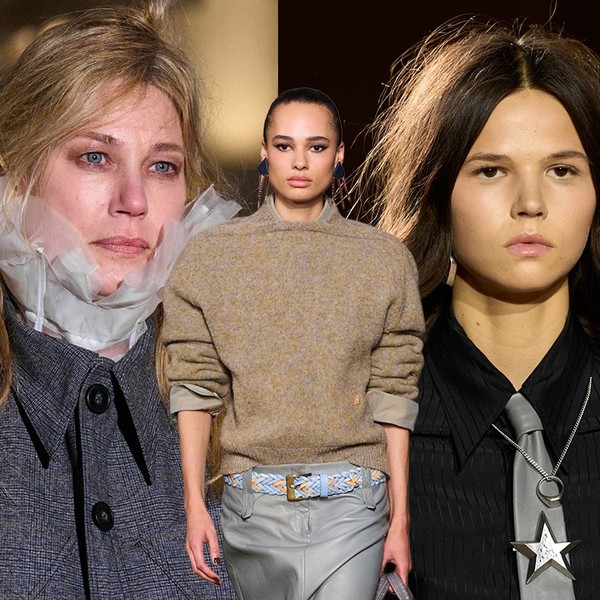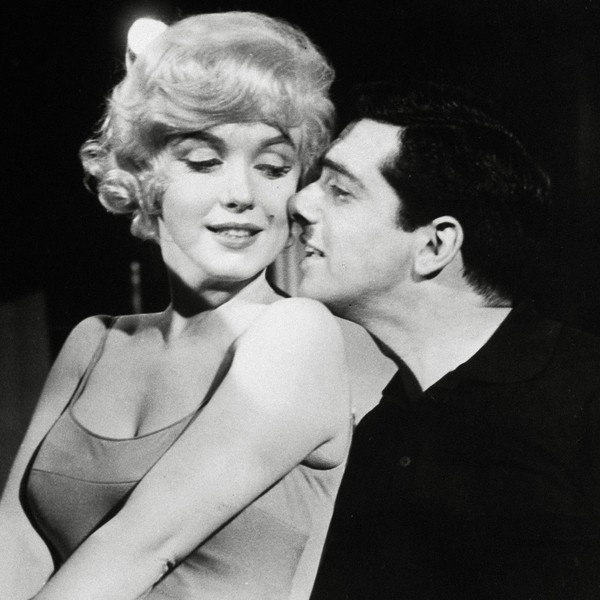The Voices Redefining the Wellness Industry
These founders are working to make wellness a more inclusive space.
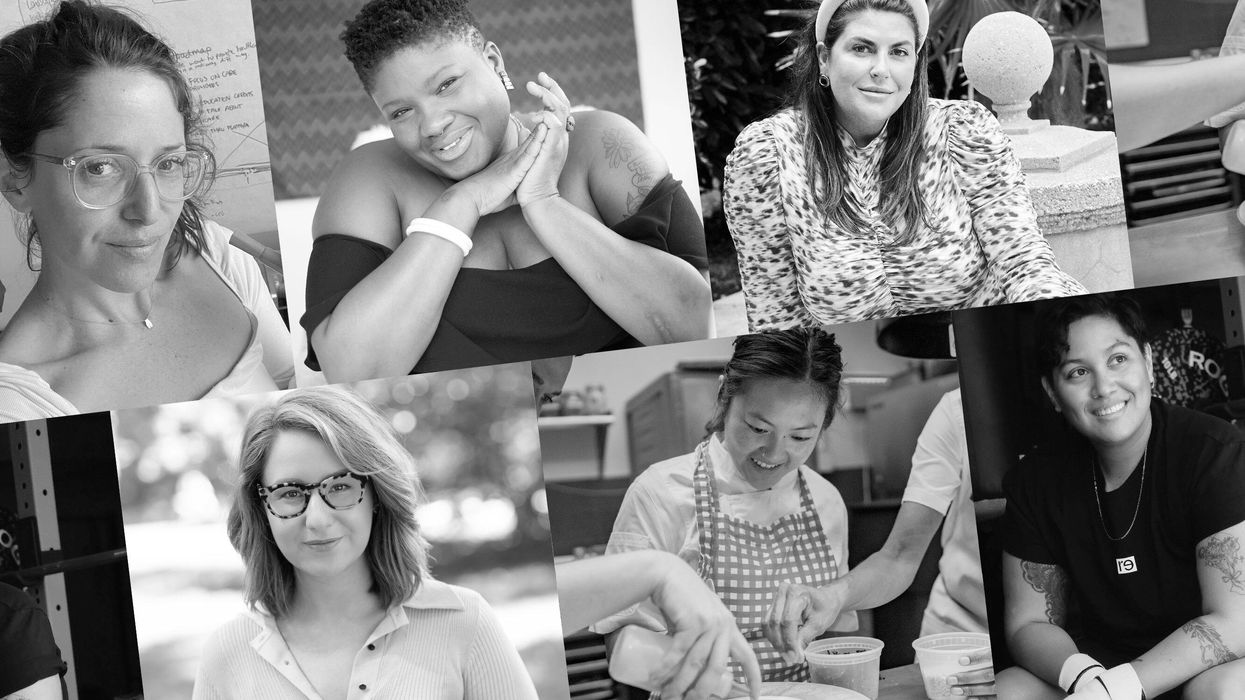
Too often, being interested or immersed in the wellness space meant one had to adopt superficial signifiers, like owning a robust collection of leggings or being on a first-name basis with the cashiers at your local health food store. While these can be byproducts of a wellness-focused lifestyle, there’s so much more to wellness than what we wear, which supplements we take, or where we choose to shop—it’s our relationship to money, how we engage with our local community, the state of our intimate relationships, and so much more.
We spoke to six founders who are expanding what it means to create a life well-lived. Keep reading for more from the people helping reshape the wellness industry.
Chelsea Fagan, co-founder of The Financial Diet
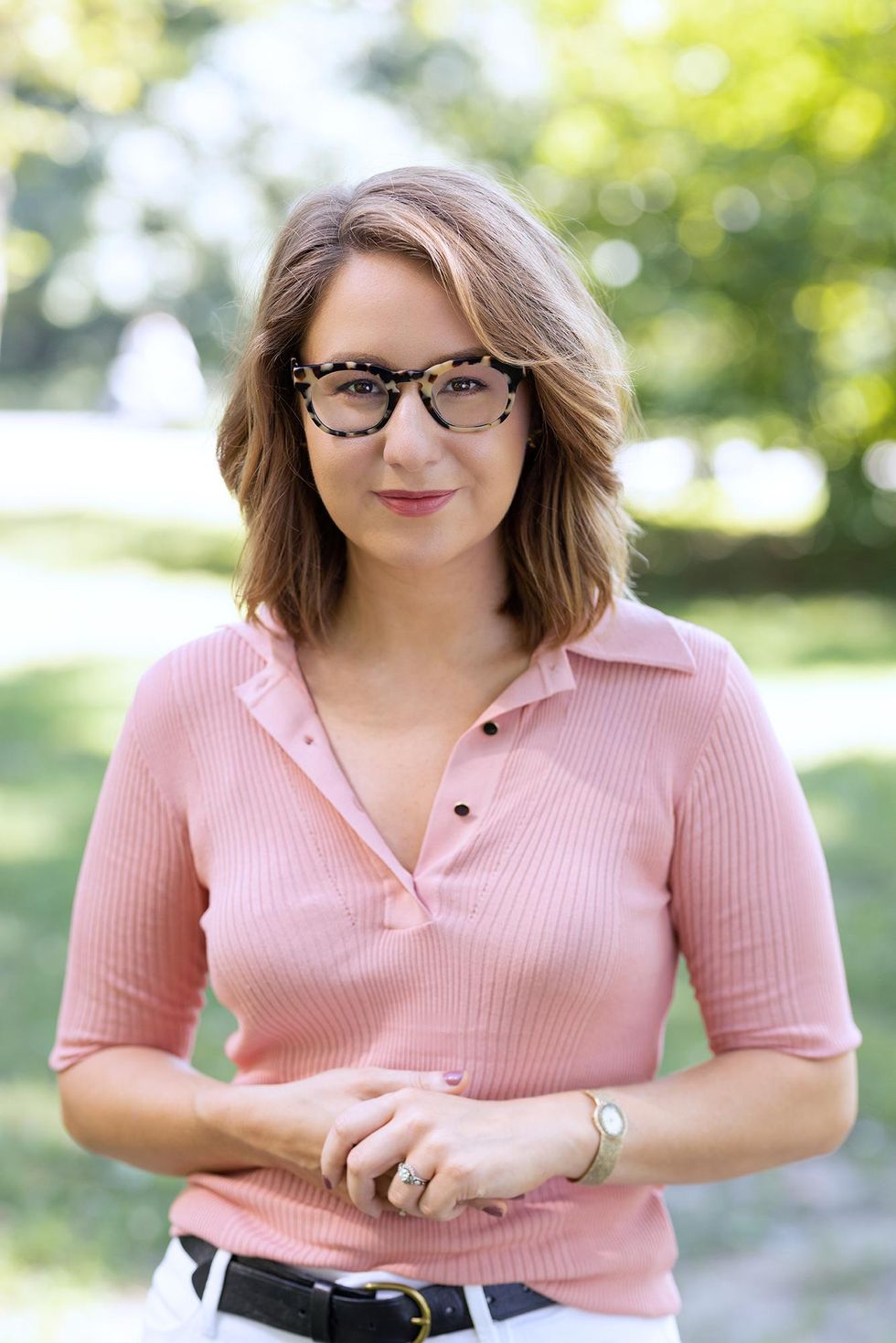
Photo: Courtesy of Chelsea Fagan
What does wellness mean to you?
“I think [having] options is the most important component of wellness for me. Wellness is often narrowly defined by specific consumer or diet habits which can be very naive and exclusionary. For example, when someone is very financially well, it's not [synonymous] with any specific type of lifestyle, it's about having the freedom to choose between different things that might be right for you. [In other words, you are] not having to restrict. For me, restriction is the opposite of wellness. I think, especially as women, when we have the most options, we feel the most fulfilled and empowered.”
What was your relationship to financial wellness like before you launched The Financial Diet? What motivated you to become a leader in this space?
“None [laughs], I was very financially unwell. I was very avoidant and insecure about money, especially with outwards signifiers of wealth. My co-founder reached out to me after I launched my own personal financial blog. I started it to sort of keep myself accountable to make better money decisions and now we’re a team of 11 women [based] here in New York City.
“I think what has motivated me to grow is realizing how much of a need there is for people to talk about money in all different kinds of ways, especially women. I have a very specific perspective when it comes to money and there are many things I can't speak on. For example, I am personally child-free. It's important that we have other content, events, and classes that are taught by mothers. I think the money part of wellness and lifestyle advice is often unintentionally very tone deaf to class. Especially when it comes to money, it's really important that we're hearing from people who are all over the financial spectrum and not just myself, a CEO.”
Finance isn’t always the first thing we think of when we talk about wellness. How do you think that financial wellness fits into the wider conversation and what might still be missing?
I think a lot of the wellness conversation speaks explicitly to a financially privileged [individual], especially when it comes to beauty, skincare, yoga, clean eating, and all of that stuff. If we take the framing of wellness to mean flexibility and freedom, the biggest missing component is how these things can be accessible at different budget levels but also ways in which we can focus on making some of these changes on a more structural level.
“One aspect that I still find absent in a lot of the financial discourse is a level of class consciousness or broader economic analysis. A lot of times financial advice is just hyper-focused on how to game the system as an individual. At the end of the day, not doing anything to take care of your own finances is only gonna hurt you, right? But at a certain point, I do think it's very important to say, okay, here's the best way to operate within the system that we have, but the system itself is also bad in a lot of ways and should be improved.”
Reflecting back on the past eight years, what impact do you think The Financial Diet has had so far?
“Well, if I did anything, I hope it was making a moderate dent in the armor of the ‘Girl Boss.’ Girl bossing was at its all-time high in the early days of our company, and even when we were selling our book, everyone was like, can we make this Girl Boss for money? We've always been quite against that entire version of feminism, consumerism, and capitalism. So I definitely think that's at least part of our impact at TFD. We're still looking to do a lot, but I would say the number one thing is having all of these different voices and stories within finances represented. I think that's most important.’
Katie Sturino, founder of Megababe
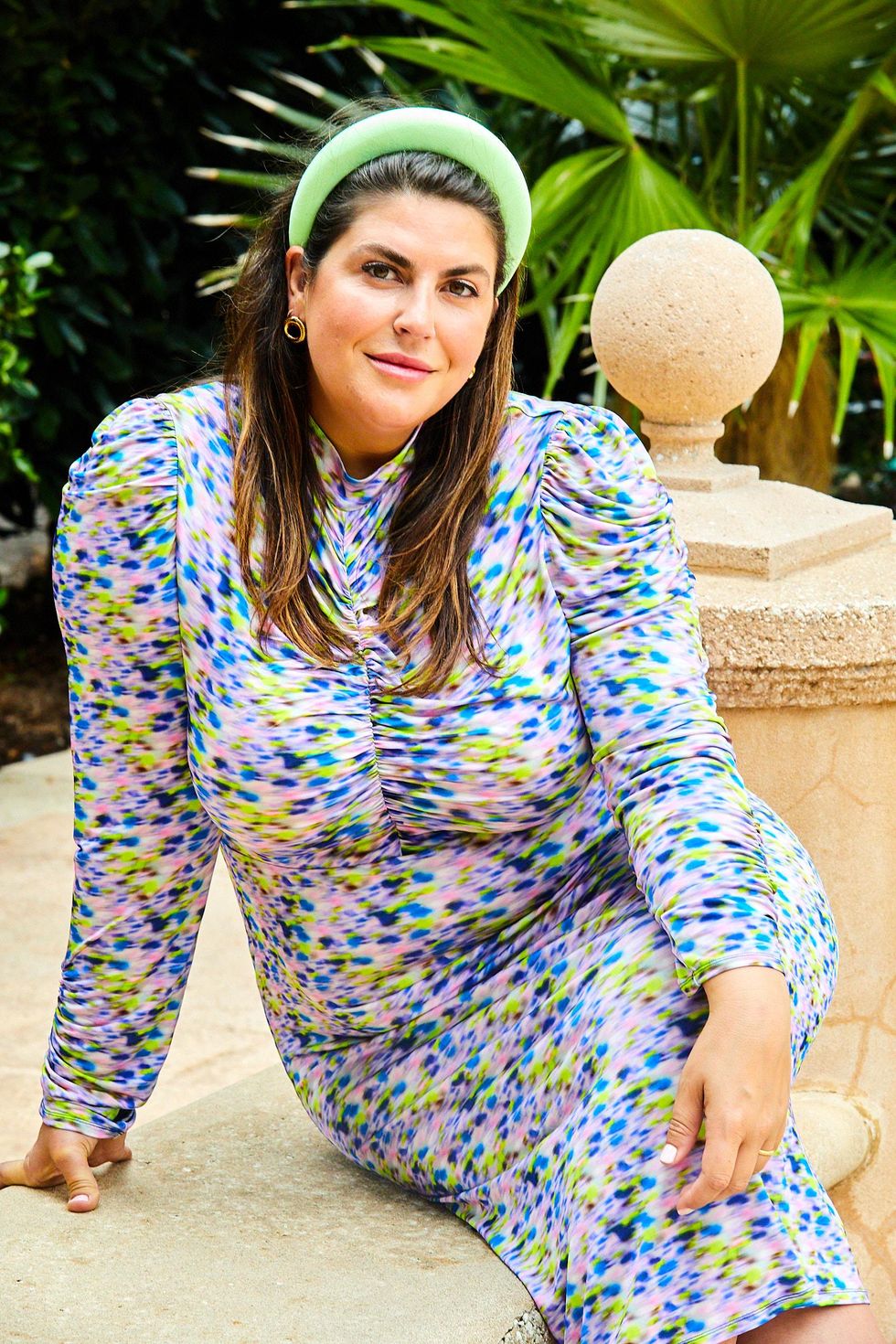
Photo: Courtesy of Katie Sturino
What was your relationship to beauty and wellness before and after creating your brand, Megababe?
“For so long there was just one type of beauty [that society recognized]. If you didn't subscribe to that one type of beauty, then you were not beautiful. It's obviously different right now, which I'm so happy about. I am glad that I've been part of that change. Through Megababe I've been able to influence women to feel comfortable in their bodies as they are today. There's a reason that big beauty had never addressed chafe. It was because you had to have a thigh gap and if you didn't, then you weren't subscribing to the right type of beauty and you weren't obviously doing the right type of wellness—and that's ridiculous. I am proud that we've been able to change the narrative for how you can feel about yourself.”
Do you think beauty falls under the umbrella of ‘wellness?’
“What [Megababe is] trying to communicate with [the idea of] beauty as wellness is actually mental health. [For example] putting on a face mask is the action and wellness is the title of what you're doing. But it’s not just about taking care of your skin, it's about taking time for yourself and prioritizing your mental health. As women, we do not get permission to take time for ourselves. We have been pumped with the opposite messaging.”
You wrote the book Body Talk: How to Embrace Your Body and Start Living Your Best Life. How do you think that body image and body talk ties back into wellness?
“I think Body Talk is a wellness resource. Because again, if wellness is really about your mental health, then I think your relationship to your body is really important. It's not very healthy to hate your body. If every time you look in the mirror and you have a negative experience and you say bad things to yourself, then you just repeat those messages to yourself throughout the day. I don't really think that that's very great for your brain. It really comes down to that mental shift.”
What influence do you think you’ve had on the beauty and wellness space? What else do you still want to accomplish?
“When we started five years ago, it was not common practice for large retailers or media to talk about boob sweat and thigh chafe. The fact that we don't have to fight for that anymore means that we've made great steps forward. It was not easy making those strides and having to re-explain to different people that this is just normal stuff. It's not weird or niche. We [still] have a lot to do. We have a lot of areas of the body to get into and new formulas [to make] for different women and different types of people. I will just continue to push women to feel good about their bodies and to feel comfortable and confident.”
Nina Kossoff, founder of ThemsHealth
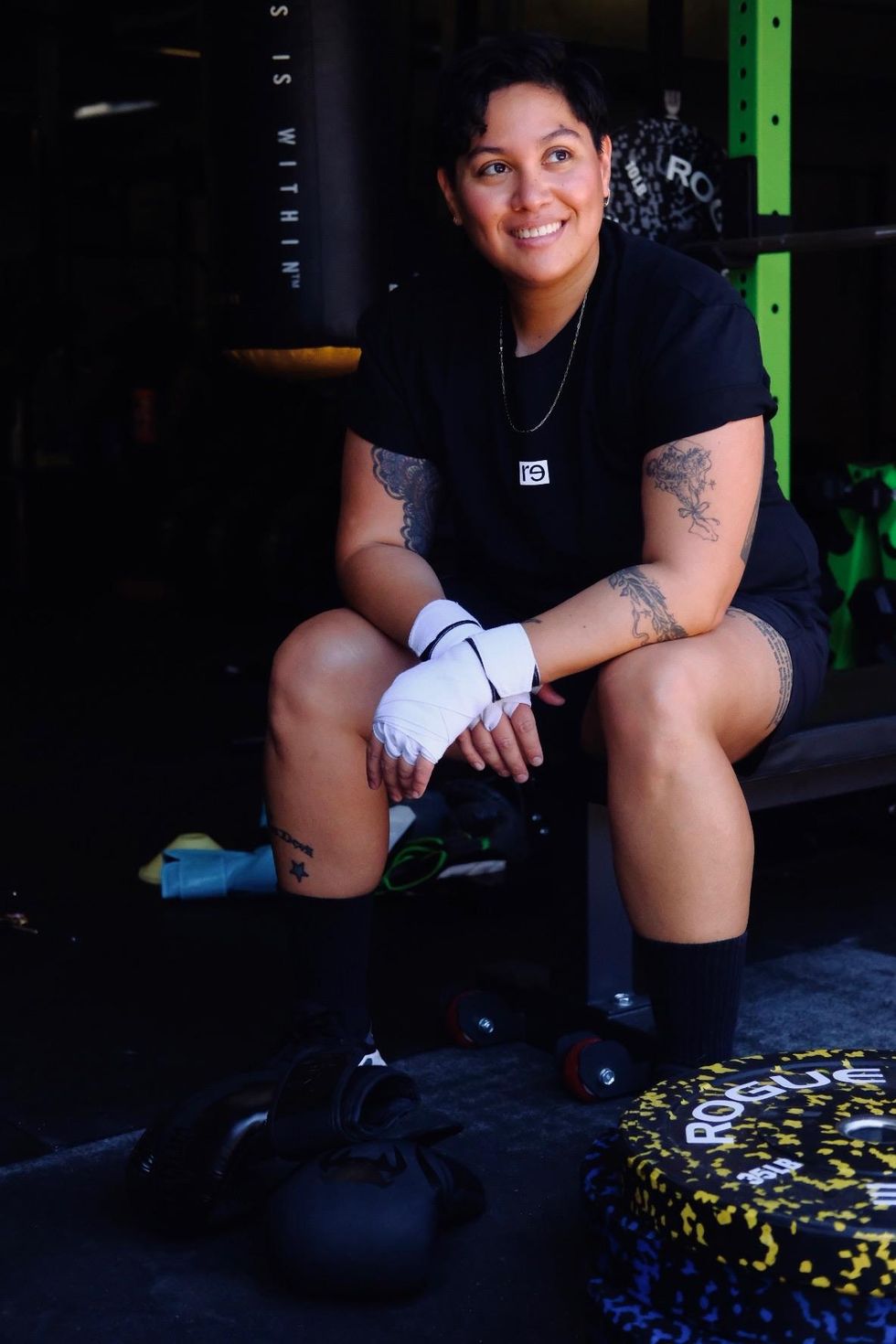
Photo: Courtesy of Nina Kossoff
How has your definition of wellness evolved over time?
“I think especially working in an LGBTQ healthcare, philanthropic, and social space, [for me wellness] is so much bigger than just nutrition and exercise. It’s the broader, all encompassing story of economic health and wellbeing, safety and comfort, and legislation where you live. It's more than just the ability to eat well or move your body, because those are so influenced by what people have access to.”
What led you to create ThemsHealth?
“I noticed a friend of mine had been writing for Men's Health and Women's Health and I was like, that's funny, those don't relate to me. I joked that there should be a Them's Health, then I snagged the username and ran with it. I used my brand strategy experience to be like, okay so what would I wanna talk about that's aligned with what a health magazine might be covering today? What would be helpful for the trans and non-binary community?
“I also joined FOLX Health [a virtual healthcare company which focuses on LGBTQ+ providers] in 2020 and started building their library of information in partnership with clinicians who have dedicated their careers to helping the queer and trans community. One of the big ideas I brought to FOLX is our HRT care fund. We work with brand partners and individual donors to provide free grants for hormone care. Sort of meeting that basic need of yes we can have information, we can have providers but if people can't financially access that type of care, then what's the point.”
ThemsHealth’s platform emphasizes six pillars of wellness. How did you settle on those specific areas?
“It was through the lens of how I relate to my body, and the main ways into it. I came up with physical health, mental health, nutrition, sexuality, identity, and fitness as the six key things.
“Finance is related to all of these pillars because access to so many things is solely based on money. Access to gender affirming hormones or surgeries and even just basic primary care providers who can care for non-binary patients can be expensive and hard to find. That time and money barrier to access is huge.”
You built a community through ThemsHealth. Why was this such an important element for the platform and how do you think community plays into wellness?
“Especially for queer and trans communities, having access to other people with similar gender expansive identities means a lot for someone to be able to feel like they are not alone or to feel reassured in decisions they want to make. The other piece is that there's not a ton of research out there about gender affirming care outside of the male-female binary, so the community relies a lot on crowdsourced information from one another. [The information] may not be something that's proven through research but people have answers from their personal experience that can help others.”
Jessamyn Stanley, author, yoga instructor, founder of The Underbelly
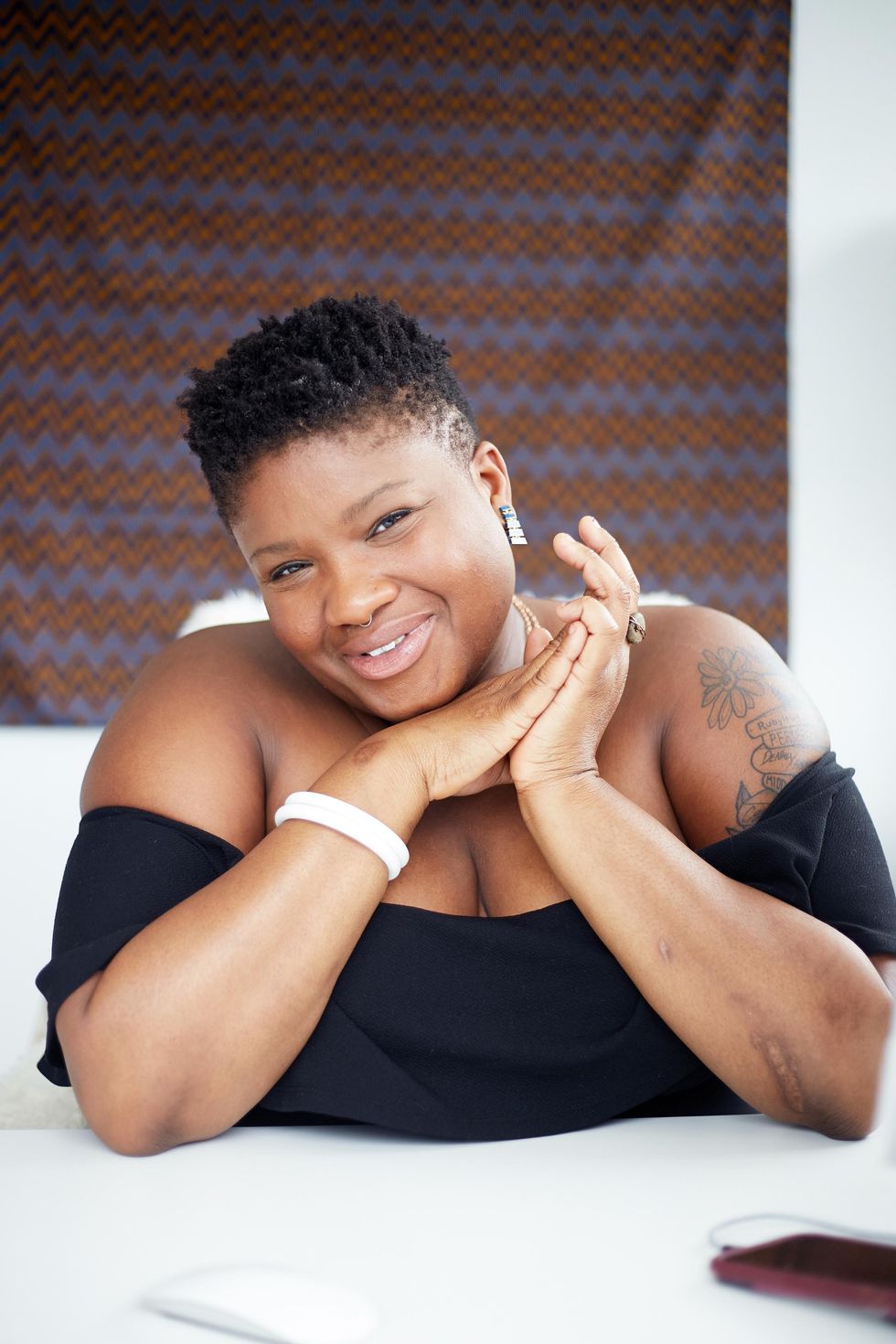
Photo: Jade Wilson
You often write about ‘the yoga of the everyday’. Are there principles of yoga that you apply to your approach to business?
“The flexibility, core strength, and grounding practiced in yoga postures are exactly what you need in every moment of life, especially in entrepreneurship—to go with the flow. That’s really the biggest thing: to just go with it. And it’s a lot easier to do this if you’re remaining flexible in a physical way that translates actively in the non-physical world.
“Core strengthening and knowing that your strength comes from within is so crucial. So much in business is about trusting your instincts, trusting your gut and really being able to lean in. Grounding is important, too. When you’re in a warrior posture and you’re finding your roots from the soles of your feet to the crown of your head, feeling that level of stability is really necessary whenever the winds of change are rocking and when you need to pivot.”
How has your outlook on wellness evolved?
“When I first started to focus on yoga, I was definitely thinking about wellness one-dimensionally. It was a lot about physical presentation. And even in thinking about self-care, my understanding of that was really limited to physical aesthetics. Now, I feel that everything that happens on a physical level is just a gateway to have a deeper understanding of what's going on within. We typically translate that as mental and emotional health but I think that physical, mental, and emotional health all link together to become spiritual health. My understanding of wellness now is so very little about the physical body and really about the spiritual body and trying to come to a place of understanding that if your mental health is prioritized at the same level as your physical health, and if your emotions and your feelings are valued at that same level as well, then that is what it truly means to be well: to actually be present to all the different pieces of yourself.”
What is the biggest misconception about yoga that you want to dismantle with The Underbelly?
“I don't generally think of myself as a disruptor because I feel like I'm in a lineage that has been going on for thousands of years and I’m not saying anything different than anyone else does about yoga, to be honest. But I do think that there are a lot of misconceptions about who is allowed to practice yoga and what a good yoga practice looks like. The Underbelly exists as a place where wellness, not just yoga, but wellness in general can be for everybody.”
What imprint do you want to leave on the wellness industry?
“The imprint that I would like to leave on the wellness industry is that it’s okay to be yourself and that showing up as who you are exactly as you are is imperative. No one else can live your truth. If you are yourself as honestly, authentically, and unapologetically as possible, that makes space for others to do the same thing.”
Lauren Bille, co-founder and CEO of Allbodies Health
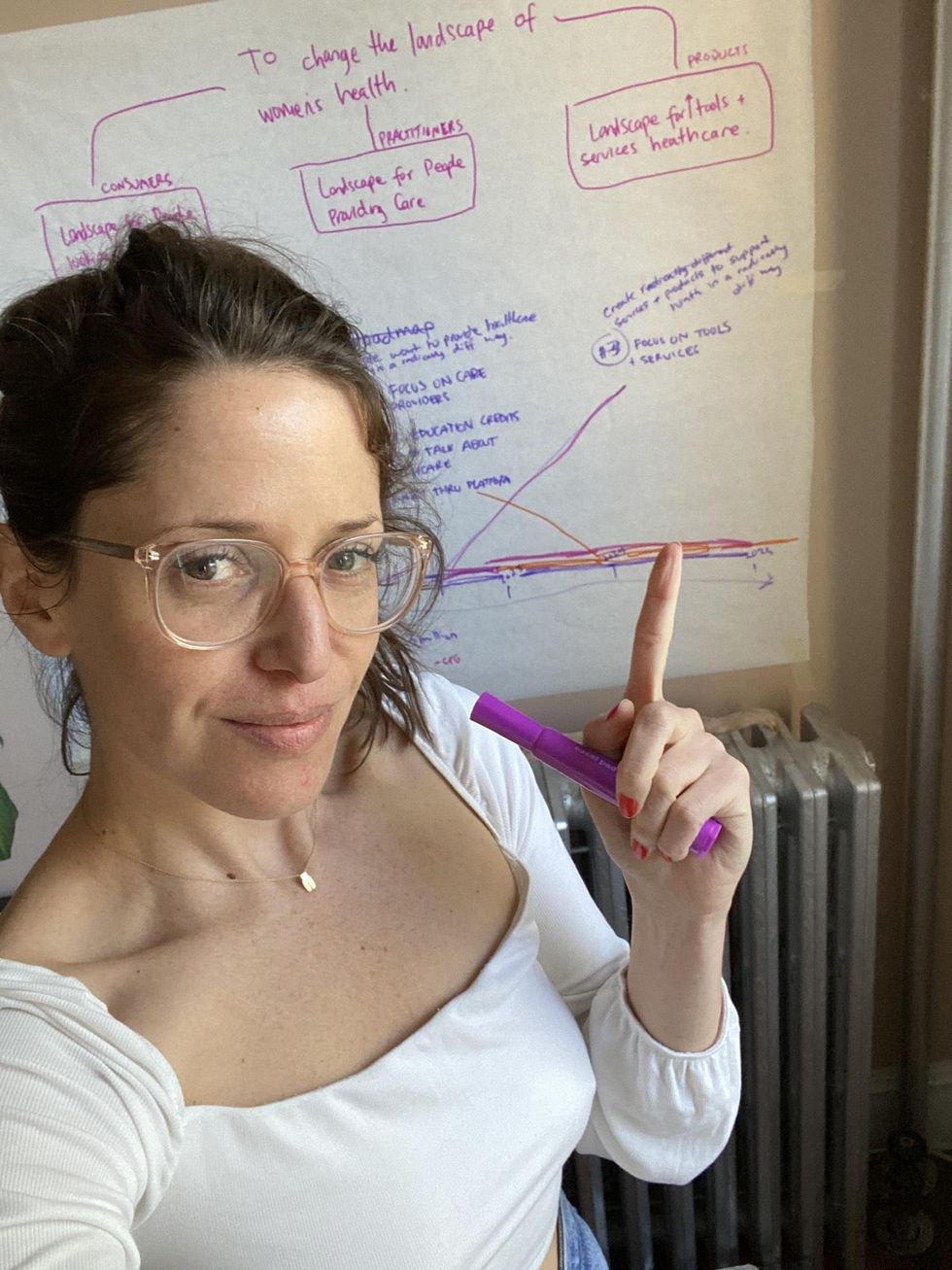
Photo: Courtesy of Lauren Bille
What was the space you wanted to fill with Allbodies?
“Sex, in general, has become a lot more accessible in the wellness space and as new products come to market, we want to make sure that there is a trusted resource that can supply the education and holistic resources [to understand them]. You might hear about cool, trendy dildos or vibrators, but if you haven't worked through your sex issues or the trauma that you went through, you won't be able to get the true freedom the sex toy company is trying to give you.”
What did your experience with sex education look like?
“I'm 39, so I graduated in 2001 and our sex-ed was talking about third base. I still remember feeling shame and weirdness [around that] and I did get into some dangerous situations [because of] that. I remember in fifth grade the teachers talked to the boys and girls separately about pubic hair and periods. Even then, I remember feeling like it was gross and weird and embarrassing. And I didn't even grow up in a religious or strict home. I just felt that way naturally because of society.
“I’m a millennial and I'm so excited for the generation behind us but even as people who live in liberal, progressive cities like New York, we weren't educated this way. I really don’t believe there is true freedom of body. I keep doing this work because every time we're sitting in those classes, from the words spoken to the questions people are asking, it's so clear that there's a gap.”
In your opinion, what is the next sexual wellness frontier?
“I think there's a big gap when it comes to straight men and their understanding, sensitivity, and appreciation of [sexual wellness]. I'm straight-ish and cisgender and when I was dating straight men, I’d see that so many are far behind in even understanding that there's so much more to sex than just them cumming.
“There are so many gaps in us even understanding how to talk about what feels good and what doesn't and I think that the next frontier is us bringing them into that conversation, too. A lot of the work is in empowering the people who have been disempowered by their bodies, but [some of the work also involves bringing] people who have been in power into the conversations so they can be sensitive to all of this.”
What imprint do you want Allbodies to leave on the wellness industry?
“I want everyone to remember that you have the most power. You have the only first-hand information about what's going on in your body, what feels good, and what doesn't. All the other people, from your sexual partner to your MD, to your acupuncturist, to your massage therapist, to your healer, they're only getting information from you—that's third-party information. I hope the impact would be that people realize they have the most power over their body and their physical body is the most powerful thing they have in this tangible world.”
Jenny Dorsey, chef, author, founder of Studio ATAO
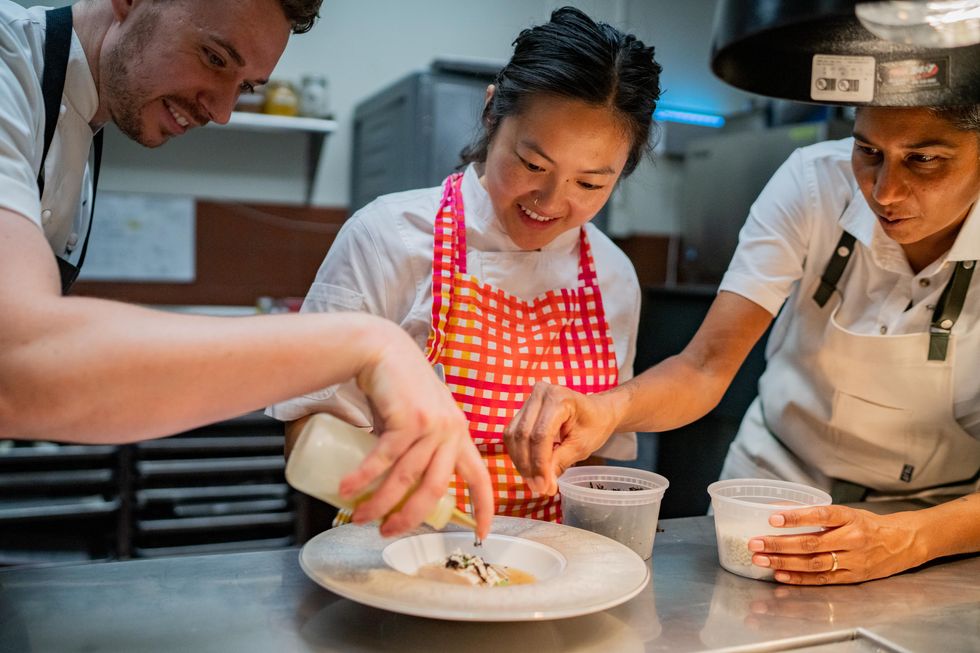
Photo: Courtesy of Jenny Dorsey
What can food teach us about how we live?
“Food is ultimately about power and therefore it's a political instrument. We have been shaped by societal forces to think about food as something we eat or something that's fun or something we do with friends. And food does involve all of those things, but it’s also a really important way that the government is able to shape our experiences. For instance, we have a SNAP program, but you can only use it on certain things; it sounds like a message that [ties] morality to food.
“There's so much power and control held up in how we consume food. It's important for people to realize that food is powerful in that it changes how we relate to other people and not just at an individual level, but at a community level.”
Food is obviously a tool for wellness, but how can food be a tool for social change?
“Ultimately food is about relationships. Being able to use food to understand our relationships allows us to not only understand the things that need to be changed, but also how to change them. We can use food to understand each other, to understand cultures, and to gather together. But on a metaphorical level, understanding things, like food aid, helps us understand what unequal power dynamics still exist in our society and helps us think about what we need to disrupt and resist. No one can fix the world by themselves but food helps you pinpoint what you can do. That's a journey for everyone to go on. I'm still on that journey.”
How did Studio ATAO go from throwing dinner party experiences to creating a social justice resource library?
“At the onset of the pandemic, we couldn't do events anymore but it proved to be a silver lining because we needed some time to think about what we wanted to be as an organization. For a long time I felt like we were building awareness and having conversations but we weren’t implementing the changes I wanted to see in the food and hospitality industry.
“We pivoted to do more think tank work; we're doing research to understand what the issues are and who’s impacted by them. We want to understand issues from different perspectives and be able to uplift solutions from people who are actually impacted by them. As we shifted our work into research, we developed a resource library that houses toolkits and primers on understanding topics like gentrification or cultural appropriation.”

